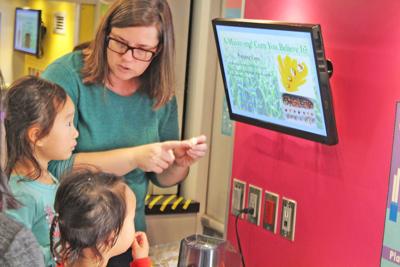On March 6, 2020, just 10 days before the COVID-19 pandemic triggered California’s shelter-in-place order and upended the world as we knew it, the Environmental Justice and the Common Good initiative convened a workshop with about 38 groups from public health, community-based groups and local farms to discuss food justice locally.
There, where handshakes were swapped for elbow bumps and a buffet lunch became a bagged one, the event planted the seeds for connections and relationships between organizations that would flourish through a disruptive year and grow into what’s now known as the South Bay Food Justice Collaborative, according to Christopher Bacon, associate professor of environmental studies at Santa Clara University. Bacon co-founded the Environmental Justice and the Common Good Initiative at the university, which focuses on doing research that engages the community on pressing topics related to environmental justice.
The event, which included the University of California Cooperative Extension and community-based food justice groups like Fresh Approach, La Mesa Verde, Valle Verde and Veggielution, was about the “last in-person event that happened on our campus before the lockdown started,” said Bacon.
Members of the collaborative have continued to meet every two weeks, and it hasn’t been led by any particular group or entity, he said. Partly because of that, he reasoned, organizations let their guards down and the competition that often builds up between nonprofits, particularly those forced to battle over too little funding from too few sources, dissolved in the face of the regional hunger crisis. The regular meetings enabled the groups to network and start their own collaborations.
As communities emerge from the pandemic, local thought leaders like Bacon are asking whether this is a turning point that could trigger a revolution that changes local food systems for the better, or whether the hazards that farms face — not just in recovering from the pandemic but from the looming impacts of climate change — pose an existential threat.
It’s a salient question not just for farmers and those in the food industry but eaters, too, especially as the current drought makes headlines and dry conditions worsen the likelihood of devastating fire seasons to come.
Across the South Bay, there are innovations sprouting up aimed at tackling differnet problems in the food system, specifically around the nexus of farm foods, food waste and food aid.
On the more conceptual side of the spectrum, there are growing initiatives to both declare food as a human right statewide or treat food as medicine.
Earlier this year, state Sen. Melissa Hurtado of District 14 — an area of California that includes parts of Fresno, Kern, Kings and Tulare counties — proposed Senate Bill 108, which asserts: “Every human being has a right to access sufficient, healthy and affordable food.”
One-third of global food production is at risk due to climate change, according to Hurtado. Given rising costs of energy, a growing population in California and shifting land usage, “We must make sure the people in our state are fed now and in the future,” she explained in remarks about the bill.
In a local initiative, Stanford University is home to the Food for Health Equity Lab, which is focused on generating evidence about how healthy foods impact chronic disease that can inform community health centers, according to the program’s website.
An innovative program that has developed during the pandemic is a partnership between the Silicon Valley Bicycle Coalition and Veggielution, an urban farm in San Jose.
Funded through a grant from the Santa Clara Valley Open Space Authority, cyclist volunteers from the bicycle coalition deliver produce boxes from Veggielution to families in East San Jose who aren’t able to pick up the food boxes themselves.
Veggielution was initially part of the federal Farmers to Families food box program described in part two of this series, but when that federal contract ended, funding through the city of San Jose allowed it to continue serving local families. The program started with just 40 families getting farm boxes, but expanded to 250, according to Emily Schwing, public affairs director at Veggielution. With the additional boxes, the program partnered with a number of other local farms, including Spade & Plow, an organic farm in the Santa Clara Valley, to supply the larger volumes of produce needed.
This article was originally published in The Almanac. CalMatters.org is a nonprofit, nonpartisan media venture explaining California policies and politics. Visit on Facebook or on Twitter @CalMatters

























(0) comments
Welcome to the discussion.
Log In
Keep the discussion civilized. Absolutely NO personal attacks or insults directed toward writers, nor others who make comments.
Keep it clean. Please avoid obscene, vulgar, lewd, racist or sexually-oriented language.
Don't threaten. Threats of harming another person will not be tolerated.
Be truthful. Don't knowingly lie about anyone or anything.
Be proactive. Use the 'Report' link on each comment to let us know of abusive posts.
PLEASE TURN OFF YOUR CAPS LOCK.
Anyone violating these rules will be issued a warning. After the warning, comment privileges can be revoked.